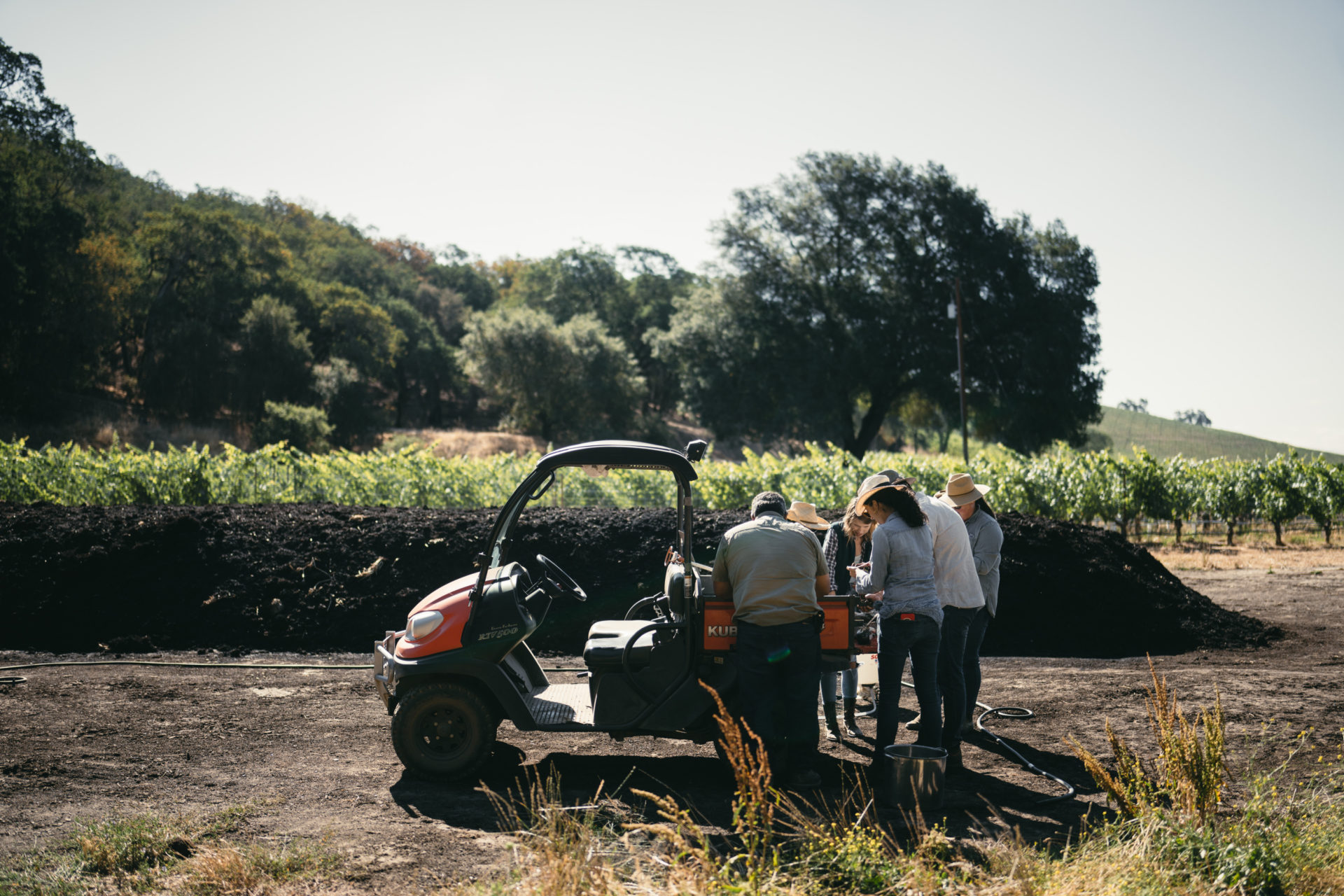
Growing the Biodynamics Community
At Quintessa, we view the land, the plants and animals it sustains, and the people who tend to it as one living, interconnected organism. This biodynamic philosophy prompts us to treat the vineyard and winery holistically—in an effort to channel the property’s energy into a pure and distinctive wine. This commitment also brings vibrancy to the estate and to our own lives.
Last year, we felt compelled to broaden the conversation. To share our enthusiasm not only with likeminded biodynamic producers around the globe, but also with a wider community in our region—of sommeliers, distributors, buyers, educators, and journalists. So we invited leaders from three of Italy’s benchmark regions, Abruzzo, Piedmont, and Trentino Alto-Adige, to co-host biodynamic master classes at Quintessa.
Our three-day gathering in July marked the seventh global edition of the Cambium Formazione series, and its first time in the United States. Old World challenges are likewise New World concerns—the importance of sustaining the land with farming practices that support it—even if soils and geologies vary around the globe.
Previously, Cambium masterclasses in Europe had focused on the mechanics of implementing biodynamic principles. But in our discussions at Quintessa, the producers went far beyond technical details. Eloquent and inspiring, they shared the humanity of their biodynamic journeys—their convictions about the need to farm holistically and the unique barriers they have overcome (and are still working on), from entrenched traditions to biodiversifying their land. They shared their passion for responsible stewardship of their property through the generations, and most importantly, they agreed that the common goal of caring for and preserving a place brings everyone together in deep connection.
Chiara De Iulis Pepe, third-generation proprietor of Emidio Pepe in Italy’s Abruzzo region, spoke of integrating the passion and energy of a young team into the long-term vision of her family for their land, while undertaking practices like rotating crops and regenerating old vines. In Elisabetta Foradori’s telling, as her farm in Piedmont’s Langhe changed, the community changed too. Alliances formed among a broad network of biodynamic farmers. Passion permeated the whole system, and her products—from the estate’s new animal husbandry to Foradori wines—became markedly richer and more complex.
As the Cambium series closed on our final day together, Federico Ceretto, a third-generation proprietor of Ceretto in Barolo, observed that both the European and American producers in the room were looking to each other for long-term vision—it was not just one way or the other.
All these collective conversations sparked inspiration and solutions, and deeper connections became transparent. Is farming isolated from winemaking? From the geology of a place? From the perception of critics?
In the end, generating momentum for biodynamic farming, deepening the foothold it already has in the world, requires a plurality of voices and a sense of community. That was our goal—and our success—in these biodynamic masterclasses.
